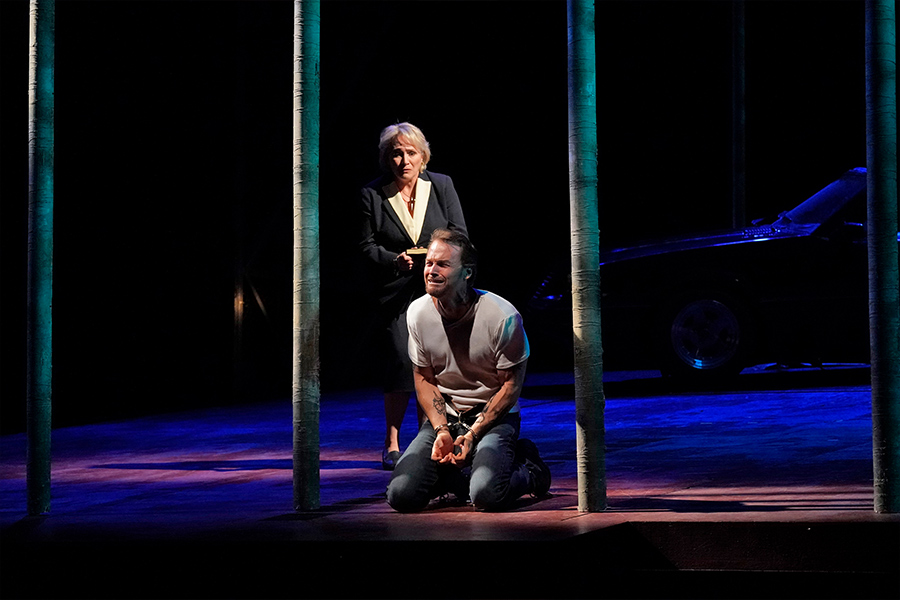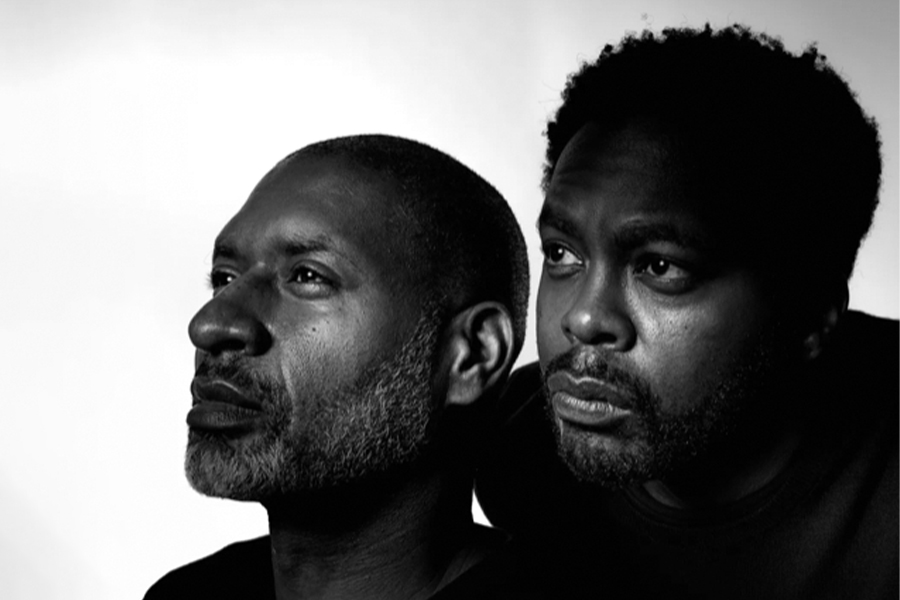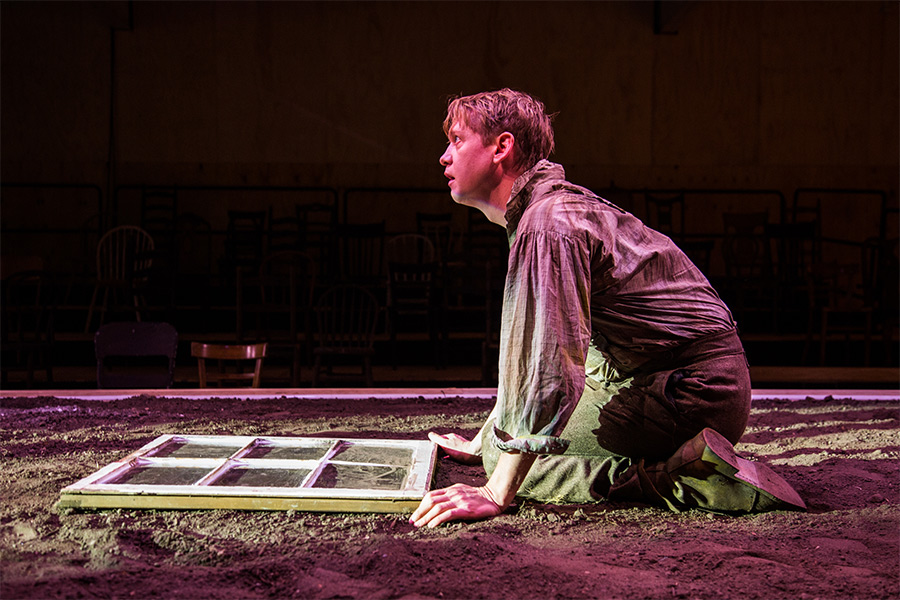March 17, 2022
Seeing ourselves: new work at Lyric
Compared with most of the operatic canon, filled as it is with centuries-old compositions from old Europe, Fire Shut Up in My Bones is a mere toddler. But the work emblematizes a movement in the opera world, a fast shift toward bringing the new inside the grandest houses and onto the biggest stages.
That’s especially true here in the home of Lyric Opera of Chicago, where Fire takes its place in a growing line of young operas Lyric has helped bring to audiences. Prominent in that cadre is of course the grandly scaled Bel Canto, a Lyric commission whose 2015 premiere garnered international notice. Dead Man Walking was a riveting highlight of the pre-pandemic season, and today there are numerous projects actively in development. Lyric is recognizing the urgent nowness of our artistic moment, a time when the stories and issues confronting people outside the opera house should undeniably be let in.
“I believe opera is for everyone,” says Anthony Freud, Lyric’s General Director, President & CEO. “Lyric has an unswerving commitment to exploring the great works of the operatic repertoire, mining their power and relevance. But I understand that the heritage repertoire may not have obvious appeal to everyone. I want us to find and create new works that will both thrill the existing opera lover and intrigue and excite people who have never been in the building before.”
Chicago, a city always building, matches the impulse for new opera like train wheels fit their tracks, says Lyric’s Music Director, Enrique Mazzola. “It is part of Chicago’s DNA to advocate for the new,” he says. “Modern and contemporary art of every type has long been a vibrant part of the city—I find that unique in the world.”

Dead Man Walking
Beginning with the 2019/20 season, Freud announced a bold initiative: to stage a contemporary, English-language opera on the mainstage every season. Dead Man Walking (2000), an adaptation of Sister Helen Prejean’s account of one man’s passage through death row, was the first. George Benjamin’s Lessons in Love and Violence (2018) succumbed to pandemic cancellations, making Fire the second installment to reach the stage.
Audiences see their worlds echoed in the new work. “I want the subject matters of operas in this series to resonate powerfully with contemporary communities,” Freud said during the run-up to the Lyric performances of Dead Man Walking. Just as Mozart’s contemporaries would see as relevant and topical the anti-aristocracy revolutionary attitudes underpinning The Marriage of Figaro, so too do we see the death penalty, the abuse of political power, or issues of sexuality today.

Charles M. Blow with Will Liverman
Behind the jazz, choreography, and flashbacks in Fire resides the classic operatic framework of the Bildungsroman — a story dealing with one person’s identity and development. Fire depicts recognizably modern-day characters, traveling through lives close to our own in time and space. The main character is based not only on a recognizable person, but one who is also still alive: Charles M. Blow, The New York Times columnist whose memoir provided the source material for the opera. “How often do we get a chance as performers to tell stories about people who are still with us?” says Will Liverman, the baritone who plays Charles.
Indeed the dynamic between character and living man led to some uncanny moments. Liverman and Blow met at a photo shoot to promote the opera, giving Liverman the rare opportunity to interact with and examine the inspiration for his character. He observed him to be a careful observer, appropriately enough.
Then the personas switched. “We did a talkback where I actually had to sing in front of him—Charles’s aria— which is so surreal to live in a character, and there is the person, right there,” Liverman says. “After the opening, one of his kids came up to me and said, ‘You did a great job portraying my father.’ When do we hear that after a show?”
In another opportunity available when a piece’s creator is still alive, Fire composer Terence Blanchard made changes to the score after the show’s premiere in St. Louis to adapt it to the new casts and larger houses it would see at Lyric and the Met. The work can still live and breathe with the principals available to adapt it, expanding or contracting according to the needs of the performers and the venues.
Liverman, an alumnus of Lyric’s Patrick G. and Shirley W. Ryan Opera Center, brings more new work to Lyric in the 2022/23 Season, as co-creator of The Factotum, a “soul opera” set in a South Side barbershop, based loosely on opera’s most famous barber, Figaro from The Barber of Seville. The DJ and producer King Rico is collaborating with Liverman to develop an upbeat show embracing wide-ranging musical styles, from R&B, rap, and gospel to traditional barbershop.

Proximity
The approaching 2022/23 mainstage season also features a ground-breaking, tripartite project titled Proximity, putting on display some of the most important artists of our time: composer Daniel Bernard Roumain working with acclaimed playwright and actress Anna Deavere Smith as librettist, for The Walkers; Caroline Shaw, as composer and co-librettist with Jocelyn Clarke for Four Portraits; and John Luther Adams, setting a text by the late poet John Haines for Night. Yuval Sharon oversees the project as director, his first with Lyric since the Götterdämmerung-in-a-parking-garage pandemic fantasy Twilight: Gods. Renée Fleming, Lyric’s Special Projects Advisor and a prime force behind the Bel Canto premiere, curated Proximity.
Lyric has also announced several other contemporary works in the production pipeline. Omar tells the story of Omar ibn Said, a real-life Islamic scholar from West Africa who was captured and enslaved in the United States in the early 19th century. The opera’s creative forces include Michael Abels, the film composer behind Get Out and Us, and the versatile musician and performer Rhiannon Giddens, founder of the Carolina Chocolate Drops and the recipient of a MacArthur “genius” grant.

Proving Up
And two works by Missy Mazzoli, a former Chicago Symphony Orchestra composer-in-residence, await their Lyric productions. Proving Up, a supernatural examination of the American dream (turned nightmare) among homesteaders in 19th-century Nebraska, would have premiered this past January but was postponed. Lyric plans to return to it in a future season. The other, The Listeners, concerns a community of people who can hear a hum in their hometown and are swept up by a charismatic, cult-like leader. Both works feature a libretto by Mazzoli’s frequent collaborator Royce Vavrek.
All of which adds up to a lot of art that Chicago hasn’t seen before — except, of course, in the parts of the new operas that mirror our modern lives. The new works may not have the no-need-to-read-the-synopsis familiarity of the old guard, but the odds are that some of them will populate the next generation of that canon.
